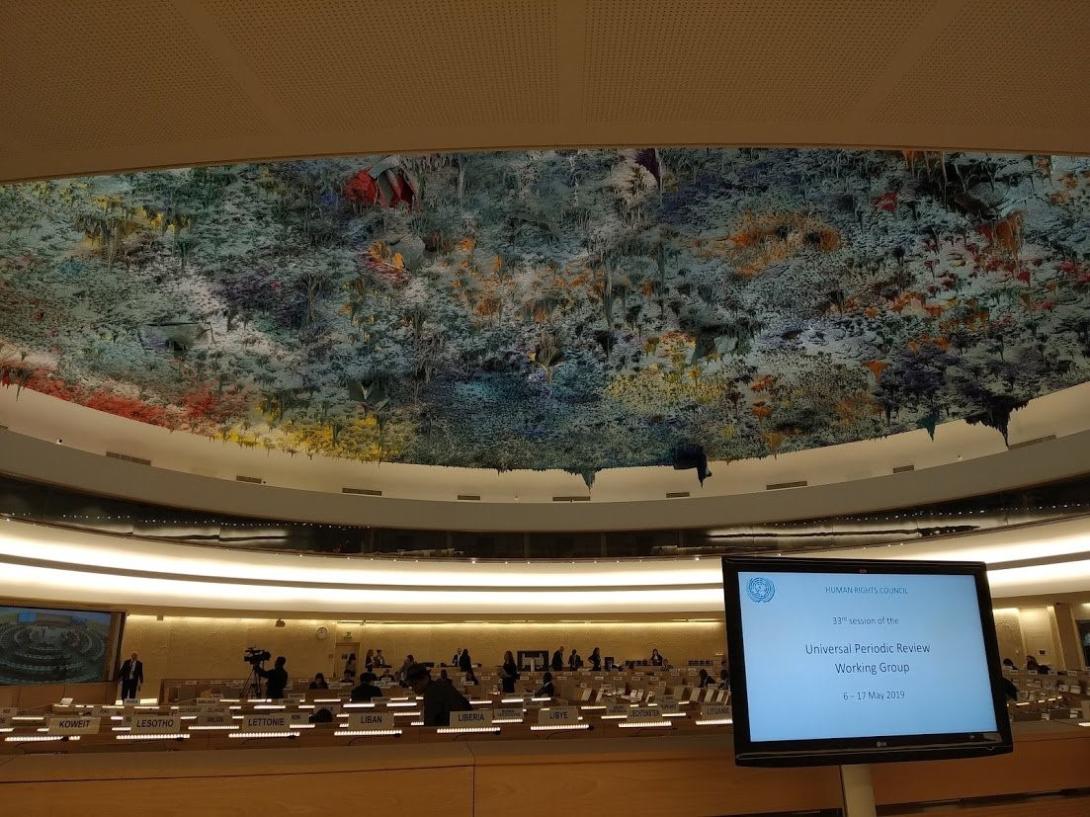
Outcome of the UPR of the Democratic Republic of the Congo at the UN
On May 7, 2019, the Universal Periodic Review (UPR) Working Group reviewed the human rights record of the Democratic Republic of Congo (DRC) during its 33rd session. One month ahead of the session, our local partner in the DRC, REEJER, supported by FAAI and Apprentis d'Auteuil, participated in the UPR pre-sessions in order to present our recommendations to State delegations and lobby for their support.
The DRC delegation was chaired by Ms Marie-Ange Muchobekwa, Minister of Human Rights, who took the floor at the beginning of the session to present the national report. The State delegations then made their recommendations to the Congolese government. Overall, 99 delegations made 267 recommendations to the DRC.
Our advocacy for children's rights during the pre-session payed off during the review. Indeed, Liechtenstein and Malta, with whom we had bilateral meetings, each took up three of our recommendations to the Congolese State. Iceland, took up our recommendation on the nationwide awareness campaign on the phenomenon of children accused of witchcraft. Overall, 2 recommendations were made on the National Council for Children, 4 recommendations on young girl-mothers and/or early pregnancies and 6 recommendations on the phenomenon of children accused of witchcraft. Furthermore, Algeria recommended that ‘’inclusive measures be implemented to ensure non-discrimination of street children.’’ Finally, some 20 recommendations were made on access to education and health care services.
In addition, the Minister of Human Rights also addressed the issue of children accused of witchcraft: ''(...) Children accused of witchcraft are beaten up, chased by their own parents, because pastors have accused them of witchcraft. No law of the Democratic Republic of Congo recognizes witchcraft. Witchcraft cannot be proven. But there are many children who end up on the street because they are accused of witchcraft. The government has implemented all the necessary measures to combat this phenomenon, which has been ongoing for more than 25 years today, and will therefore take a long time to erase from the Congolese collective imagination. Explain that a very turbulent child is not necessarily a ’witch-child’. And that when a family member dies and a child behaves strangely, make it clear that death exists. We can't, there's no cure for death. (…) ‘’
The Minister's emphasis on the persistence of the belief in witchcraft and accusations against children for 25 years, despite the fact that it is not provable nor recognized by law, highlights the complexity of the problem and how deeply rooted the belief is in the society. As she points out, it is necessary to change the Congolese collective imagination in order to counter this phenomenon, and this is what we are advocating for with our recommendation lobbying for a nationwide awareness campaign on the phenomenon of children accused of witchcraft.
The Congolese government will either accept or take note of the recommendations received, at the latest, at the 42nd session of the Human Rights Council next September. Following the session, REEJER, supported by FAAI and Apprentis d’Auteuil, will seek to collaborate with the government on the effective implementation of the accepted recommendations relating to children's rights.